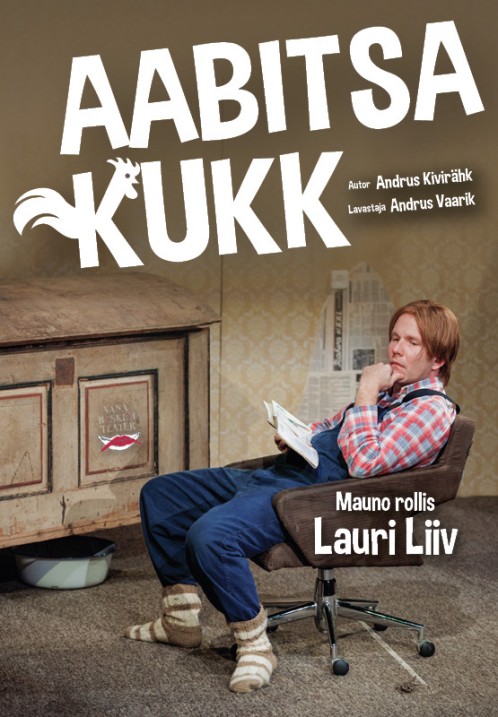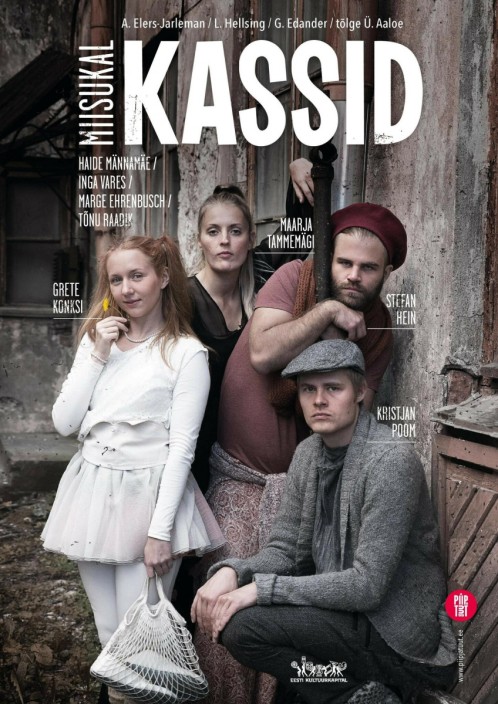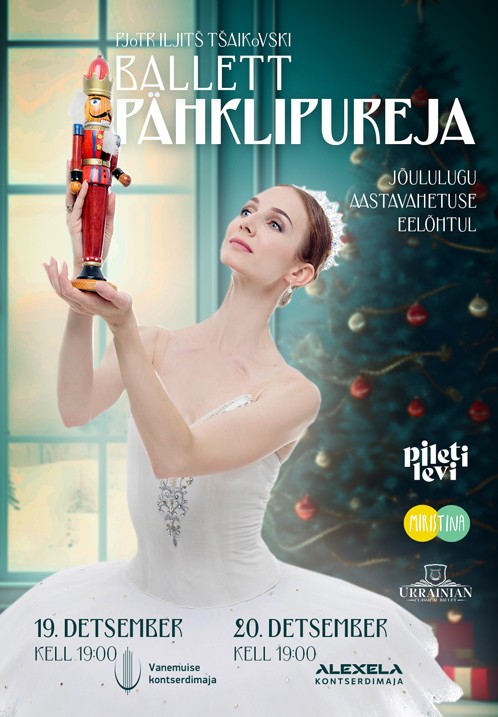Suositeltava
Suositeltava
 Osta lippu Ballet Royal Gala Ballet Royal Gala Alexela Kontserdimaja, Tallinn
Osta lippu Ballet Royal Gala Ballet Royal Gala Alexela Kontserdimaja, Tallinn -20%
 Osta lippu Thomas Anders. 40 years of Modern Talking Thomas Anders. 40 years of Modern Talking Alexela Kontserdimaja, Tallinn
Osta lippu Thomas Anders. 40 years of Modern Talking Thomas Anders. 40 years of Modern Talking Alexela Kontserdimaja, Tallinn  Osta lippu Vennad Urbid - Laulud & Noodid - Raamatu esitluskontsert Vennad Urbid - Laulud & Noodid - Raamatu esitluskontsert Mooste folgikoda Põlvamaal
Osta lippu Vennad Urbid - Laulud & Noodid - Raamatu esitluskontsert Vennad Urbid - Laulud & Noodid - Raamatu esitluskontsert Mooste folgikoda Põlvamaal  Osta lippu Glenn Miller Orchestra directed by Wil Salden Glenn Miller Orchestra directed by Wil Salden - Eri paikoissa
Osta lippu Glenn Miller Orchestra directed by Wil Salden Glenn Miller Orchestra directed by Wil Salden - Eri paikoissa  Osta lippu Chicago the Musical Chicago the Musical - Alexela Kontserdimaja, Tallinn
Osta lippu Chicago the Musical Chicago the Musical - Alexela Kontserdimaja, Tallinn  Osta lippu Andrus Kivirähk 'Aabitsa kukk' Andrus Kivirähk 'Aabitsa kukk' - Eri paikoissa
Osta lippu Andrus Kivirähk 'Aabitsa kukk' Andrus Kivirähk 'Aabitsa kukk' - Eri paikoissa  Osta lippu Kyiv Grand Ballet 'Luikede Järv' / 'Swan Lake' Kyiv Grand Ballet 'Luikede Järv' / 'Swan Lake' - Eri paikoissa
Osta lippu Kyiv Grand Ballet 'Luikede Järv' / 'Swan Lake' Kyiv Grand Ballet 'Luikede Järv' / 'Swan Lake' - Eri paikoissa  Osta lippu Gruusia Kuninglik Rahvusballett 'Gruusia tuli' Gruusia Kuninglik Rahvusballett 'Gruusia tuli' Erinevates kohtades
Osta lippu Gruusia Kuninglik Rahvusballett 'Gruusia tuli' Gruusia Kuninglik Rahvusballett 'Gruusia tuli' Erinevates kohtades  Osta lippu Hotell Viru ja Starlight Cabaret esitlevad: The Greatest Show Hotell Viru ja Starlight Cabaret esitlevad: The Greatest Show - Restoran Merineitsi, Original Sokos Hotel Viru, Tallinn
Osta lippu Hotell Viru ja Starlight Cabaret esitlevad: The Greatest Show Hotell Viru ja Starlight Cabaret esitlevad: The Greatest Show - Restoran Merineitsi, Original Sokos Hotel Viru, Tallinn  Osta lippu Mozart vs Strauss Mozart vs Strauss - Eri paikoissa
Osta lippu Mozart vs Strauss Mozart vs Strauss - Eri paikoissa  Osta lippu The Ultimate Tribute to Queen - Majesty (UK) The Ultimate Tribute to Queen - Majesty (UK) - Eri paikoissa
Osta lippu The Ultimate Tribute to Queen - Majesty (UK) The Ultimate Tribute to Queen - Majesty (UK) - Eri paikoissa  Osta lippu Piip ja Tuut Teater esitleb 'miisukal Kassid' Piip ja Tuut Teater esitleb 'miisukal Kassid' - Eri paikoissa
Osta lippu Piip ja Tuut Teater esitleb 'miisukal Kassid' Piip ja Tuut Teater esitleb 'miisukal Kassid' - Eri paikoissa  Osta lippu TEULIS varjuteater 'Sinu vari' TEULIS varjuteater 'Sinu vari' Erinevates kohtades
Osta lippu TEULIS varjuteater 'Sinu vari' TEULIS varjuteater 'Sinu vari' Erinevates kohtades  Osta lippu The World of Hans Zimmer - A New Dimension The World of Hans Zimmer - A New Dimension Unibet Arena
Osta lippu The World of Hans Zimmer - A New Dimension The World of Hans Zimmer - A New Dimension Unibet Arena  Osta lippu Ballett 'Pähklipureja' Ballett 'Pähklipureja' Erinevates kohtades
Osta lippu Ballett 'Pähklipureja' Ballett 'Pähklipureja' Erinevates kohtades  Osta lippu Komöödiateatri lavastused Komöödiateatri lavastused - Eri paikoissa
Osta lippu Komöödiateatri lavastused Komöödiateatri lavastused - Eri paikoissa  Osta lippu Tervenemine Tervenemine - Vene Teater, Tallinn
Osta lippu Tervenemine Tervenemine - Vene Teater, Tallinn  Osta lippu Vello Toomemets 70 'Pillimehe leib' Vello Toomemets 70 'Pillimehe leib' - Eri paikoissa
Osta lippu Vello Toomemets 70 'Pillimehe leib' Vello Toomemets 70 'Pillimehe leib' - Eri paikoissa  Osta lippu Dagö +1! Lenna Kuurmaa, Liisi Koikson, Jarek Kasar Dagö +1! Lenna Kuurmaa, Liisi Koikson, Jarek Kasar - Eri paikoissa
Osta lippu Dagö +1! Lenna Kuurmaa, Liisi Koikson, Jarek Kasar Dagö +1! Lenna Kuurmaa, Liisi Koikson, Jarek Kasar - Eri paikoissa  Osta lippu 'Nende poeg' - kaasav lavastus 'Nende poeg' - kaasav lavastus Eesti Teatri- ja Muusikamuuseum, Tallinn
Osta lippu 'Nende poeg' - kaasav lavastus 'Nende poeg' - kaasav lavastus Eesti Teatri- ja Muusikamuuseum, Tallinn
Tuloksia ei löytynyt!